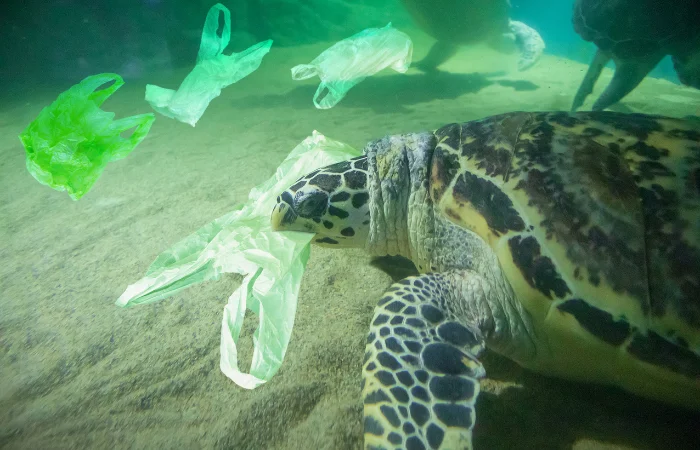Recycling ocean plastic: a commendable goal or a misleading marketing ploy? As consumers, we’re often drawn to products that claim to help save our oceans by incorporating recycled marine plastic.
Brands like Coca-Cola and Adidas have made bold claims about using ocean plastic in their products, promising environmental benefits.
However, the truth behind these claims isn’t as straightforward as it seems.
In this article, we delve into the often-misunderstood world of recycled ocean plastic, exploring the realities behind the marketing, the challenges in actual recycling processes, and the broader environmental impact.
In this article, you will learn:
- The real challenges in recycling ocean plastic.
- How companies use greenwashing in marketing.
- Ways to make more informed environmental choices as a consumer.
Let’s dive into the murky waters of recycled ocean plastic and uncover the truth behind the glossy marketing campaigns.
The Misleading Narrative of Recycled Ocean Plastic
Marketing Strategies and Ocean Plastic
In recent years, the narrative around recycled ocean plastic has been heavily driven by the marketing efforts of large corporations. Brands like Adidas and Coca-Cola have made headlines with their initiatives to use ocean plastic in their products. This narrative plays into a growing consumer desire to support environmentally friendly practices. However, the truth behind these initiatives is often more complex than the marketing suggests.
The challenge begins with the actual collection of ocean plastic. Contrary to the imagery of extracting waste directly from the ocean, a significant portion of what’s marketed as ‘ocean plastic’ is often sourced from coastal areas or even regular recycling bins. The term ‘ocean plastic’ can be misleading, as it suggests a direct impact on ocean clean-up efforts that may not be entirely accurate.
Collecting Plastic from Oceans: A Herculean Task
Retrieving plastic waste from the ocean poses enormous logistical challenges. The vastness of the oceans, coupled with the dispersed nature of plastic waste, makes collection a daunting task. Most of the plastic in oceans breaks down into microplastics, which are almost impossible to collect on a large scale. Additionally, the harsh marine environment often degrades plastic, rendering it less suitable for recycling.
The reality is that a significant portion of the plastic touted as ‘ocean-sourced’ is actually ‘ocean-bound,’ meaning it is collected from coastal areas before it enters the ocean. While this is still a positive environmental effort, it’s not the same as cleaning the existing pollution from the oceans.
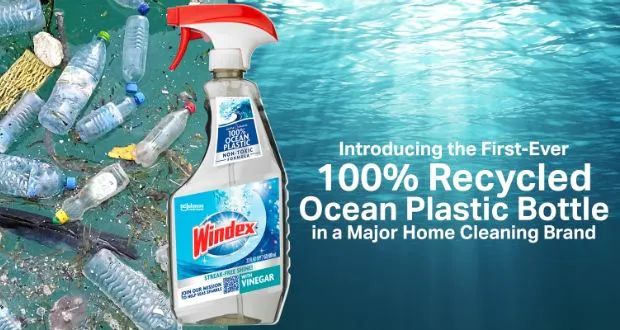
The Truth About Ocean Plastic Recycling
The Recycling Process: Not as Simple as It Seems
The process of recycling ocean plastic is more complex and less efficient than commonly perceived. When plastic waste ends up in the ocean, it undergoes physical and chemical degradation due to sun exposure, saltwater, and wave action. This degradation significantly reduces the quality of the plastic, making it more challenging to recycle.
The degraded ocean plastic needs to undergo extensive cleaning and processing to become usable for manufacturing. This process often requires more energy and resources compared to recycling regular plastic waste. Furthermore, the end product is usually of lower quality and has limited applications, which is why many products marketed as made from ocean plastic often contain only a small percentage of it, mixed with virgin or other recycled plastics.
Inefficiencies and Limitations
The inefficiencies in recycling ocean plastic raise questions about its overall environmental benefit. The energy-intensive process, combined with the lower yield of usable material, can sometimes negate the environmental advantages. In addition, the limited applications of recycled ocean plastic mean that it can’t replace virgin plastic in many products, thereby reducing its potential impact as a solution to plastic pollution.
Plenty of Greenwashing in Environmental Claims
Greenwashing is a marketing tactic used by some companies to falsely present their products or policies as environmentally friendly. This is done to capitalize on the growing consumer demand for sustainable and eco-friendly products. In the context of recycled ocean plastic, greenwashing often involves exaggerating the environmental impact of a product or its contribution to solving the ocean plastic problem.
Examples of Misleading Practices: Companies That Have Been Caught
A notable example is when Adidas launched a line of $200+ sneakers purportedly made entirely from ocean plastic.
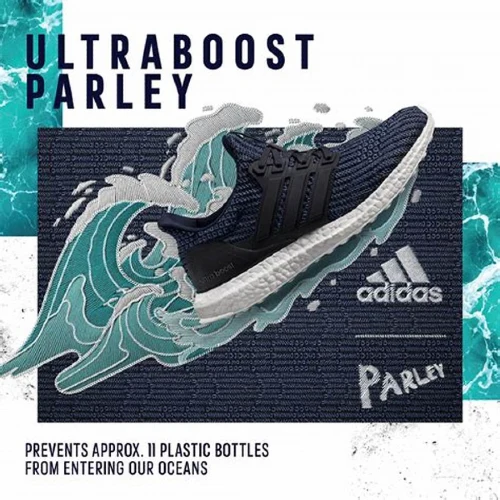
While the initiative was widely praised, a closer examination revealed that only a small percentage of the shoe was made from recycled ocean plastic. The rest was composed of other materials, diluting the environmental impact claimed in the marketing campaign. The company quickly moved to avoid any prolonged claims of greenwashing by quietly adjusting the claim on their website and in marketing materials to specify that the shoes are “partially” or “partly” comprised of recycled ocean plastic.
Not to be outdone, Coca-Cola, who’s no stranger to greenwashing claims, announced plans to use recycled ocean plastic in its bottles. Sounds great, right!
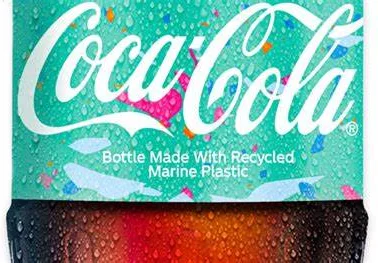
However, the reality was that the bottles contained only a fraction of recycled ocean plastic, with most of the material coming from more conventional recycling sources. And even worse than that, the company made only 300 bottles as prototypes, each produced with only 25% of recycled marine plastic. To put that into perspective, Coca-Cola produces over 1 billion bottles a year.
The world’s largest beverage producer stated, “From 2020, Coca-Cola plans to roll out this enhanced recycled content in some of its bottles.”
It’s now 2023, and we’re still waiting, although, to be fair to the $250 billion dollar juggernaut, they never did state how many “some” bottles would be.
The Impact of Misleading Claims
These examples of greenwashing not only mislead consumers, but can also harm the overall environmental cause. They create a false sense of progress and can divert attention and resources from more effective solutions. Consumers, believing they’re making a positive impact by purchasing these products, may not seek out other, more impactful ways to reduce their environmental footprint.
To combat greenwashing, there’s a growing call for transparency in environmental claims. This includes clear labeling of the actual content of recycled materials in products and an honest assessment of their environmental impact. Such transparency would empower consumers to make more informed choices and support genuinely sustainable practices.
Alternative Approaches to Ocean Plastic
In the quest to tackle the issue of ocean plastic, the concept of ‘Ocean Bound Plastic’ has emerged as a viable alternative. This term refers to plastic waste that’s at risk of ending up in the ocean but is intercepted before it can do so. Typically, this involves collecting plastic waste from coastal areas, riverbanks, or areas near waterways that are likely pathways to the ocean.
Ocean Bound Plastic, also known as Ocean Impact Plastic, is often easier to collect and recycle compared to plastic that has already entered marine environments. Since it hasn’t been subjected to the degrading effects of saltwater and sunlight, its quality is generally higher, making it more suitable for recycling into new products.
The Benefits of Focusing on Ocean Bound Plastic
Focusing on Ocean Bound Plastic has several advantages:
- It is more feasible and cost-effective to collect.
- The recycling process is more straightforward and efficient.
- It prevents additional plastic from entering the oceans, addressing the issue early.
Companies that choose to use Ocean Bound Plastic in their products can make a significant environmental impact while also providing a practical and realistic claim about their sustainability efforts.
Real-World Applications and Success Stories
Several companies have successfully incorporated Ocean Bound Plastic into their products.
GOT BAG, a startup specializing in outdoor gear, launched a line of backpacks made entirely from Ocean Bound Plastic, not 25% recycled marine plastic, but, truly, 100%. This initiative not only recycles waste but also raises awareness about the plastic pollution problem.

Boompods, introduced four accessories for electronic devices made from Ocean Bound Plastic, demonstrating the versatility of this material in various industries. The four are; Skim and Soundwave wireless earphones, the Soundflare Bluetooth micro speaker, and the more powerful Bluetooth speaker, Rhythm.
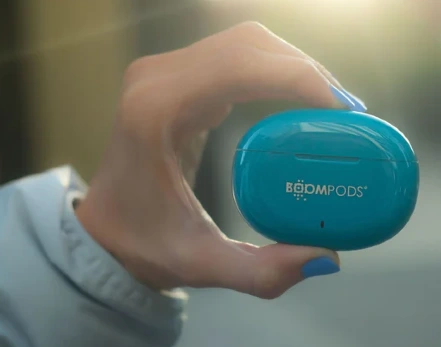
The Cost and Feasibility of True Ocean Plastic Versus Ocean-Bound Plastic
While the idea of recycling true ocean plastic is noble, the cost and logistical challenges often make it impractical for large-scale production. Ocean Bound Plastic, on the other hand, offers a more feasible and cost-effective solution. By focusing on preventing plastic from reaching the ocean, companies can make a tangible impact on reducing marine pollution.
The Environmental Impact and Consumer Responsibility
Assessing the Environmental Benefits
The use of recycled ocean plastic, while commendable in intent, needs a nuanced assessment of its actual environmental benefits. When companies recycle ocean plastic, they reduce marine pollution, which is crucial for marine ecosystems’ health. However, the environmental benefits can be offset by the high energy consumption and resource use required to process this degraded plastic.
In the case of Ocean Bound Plastic, the environmental impact is more straightforward. By intercepting plastic waste before it enters the oceans, companies can prevent further pollution and harm to marine life. This proactive approach often requires fewer resources and energy, making it a more environmentally sustainable option.
The Role of Consumers in Environmental Change
Consumers play a pivotal role in driving environmental change. By making informed choices and supporting products that genuinely contribute to sustainability, consumers can encourage companies to adopt more transparent and effective environmental practices. It’s essential for consumers to look beyond marketing claims and understand the real impact of their purchases.
Reading Beyond Marketing Claims
Consumers should seek to understand the specifics behind environmental claims. This includes questioning the percentage of recycled content in a product, the source of the recycled materials, and the overall lifecycle impact of the product. By demanding transparency and accountability, consumers can push companies to move beyond superficial greenwashing tactics.
Encouraging Informed Decision-Making
Educating oneself about environmental issues and the complexities of recycling can empower consumers to make more impactful choices. Supporting initiatives that focus on preventing plastic pollution at the source, such as using Ocean Bound Plastic, can be more effective than merely focusing on products claiming to use recycled ocean plastic.
More To Discover
Conclusion
In exploring the complex narrative of recycled ocean plastic, we’ve uncovered a landscape marked by marketing promises, greenwashing tactics, and the harsh realities of environmental impact.
While the intention behind using ocean plastic is noble, the actual process and effectiveness of these initiatives are often less straightforward than they appear. The journey from ocean pollution to recycled products is fraught with logistical, environmental, and ethical challenges.
The concept of Ocean Bound Plastic emerges as a more practical and impactful alternative, focusing on prevention rather than cure. By intercepting plastic waste before it becomes part of the marine debris problem, we can make a tangible difference in reducing ocean pollution.
As consumers, our responsibility extends beyond the allure of marketing claims. Informed decision-making, driven by a desire to understand the true impact of our purchases, is crucial. By demanding transparency and supporting genuinely sustainable practices, we can contribute to a more environmentally responsible future.
The path to a cleaner ocean is complex, but with informed choices and a commitment to sustainability, we can all play a part in turning the tide against plastic pollution.








